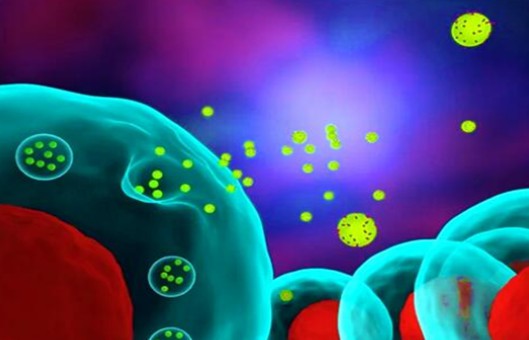Roles of MSC-EVs in Cancer Therapy
Pharmaceutics. 2023 May 10; 15 (5): 1453.
Authors: Nicodemou A, Bernátová S, Čeháková M, Danišovič Ľ.
INTRODUCTION
- Several studies have pointed out the double-edged properties of mesenchymal stem/stromal cells-derived extracellular vesicles (MSC-EVs) in the tumor environment, confirming that MSC-EVs play a dual role in promoting and inhibiting multiple stages of tumorigenesis.
- Similarly, for instance, with cancer-cell-derived EVs, MSC-EVs have also been reported to play an important role in mediating tumor proliferation, angiogenesis, apoptosis, tumor invasion, dormancy, or resistance to chemotherapy/radiotherapy.
- This inconsistency over the dual effect of MSC-EVs on tumorigenesis may be facilitated by many factors, including cell origin, experimental design, culture conditions, method of EV administration, or the tumor microenvironment (TME)-MSC-EV crosstalk.
Tumor Growth
- In general, tumor growth is regulated by a variety of growth factor receptors. The functional domains of these receptors are activated or phosphorylated by the corresponding intracellular kinases, initiating pro-growth signals that lead to tumor cell proliferation.
- It has been presented that tumor-associated miRNAs enriched in MSC-EVs are strongly associated with promoting or blocking cancer cell proliferation. Contrary to the studies mentioned above, miRNAs, lncRNAs, and proteins enriched in MSC-EVs can also participate in cancer suppression. This depends on the EVs’ content, such as the composition of respective miRNAs or protein cargo that can vary under different conditions.
Metastasis/EMT
- Metastasis is a complex process that involves the spread of tumor cells through the bloodstream or lymph vessels from their original site (primary site) to distant parts of the body and the formation of new tumors (metastatic tumors).
- Numerous studies have investigated the role of MSC-EVs in metastasis and EMT promotion, whereas their findings are contributing to both stimulating the formation of metastatic tumors as well as provoking dormant cells. Commonly, MSC-EVs play an important role in the establishment of the premetastatic tumor niche, while miRNAs carried by MSC-EVs can regulate tumor invasiveness through multiple mechanisms leading to both stimulatory and inhibitory effects.
Angiogenesis
- Angiogenesis is an essential factor for tumor growth and invasion. This process is distinctly regulated by a delicate equilibrium of pro- and anti-angiogenic factors.
- Existing evidence indicates that MSC-EVs have an inhibitory effect on tumor angiogenesis, and only a few studies suggest the promoting effect. The dual effects of enhanced angiogenesis of non-tumor tissue in contrast to suppressed angiogenesis of tumor tissues are suggested to be properties of regular MSC-EVs.
Immune Response Regulation
The dual effect of MSC-EVs in the regulation of the immune system is primarily dependent on the parental cells and the functional state of both parental and target cells. MSC-EVs possess multiple roles in the modulation of responses to T cells, B cells, dendritic cells (DCs), natural killer cells (NK), and macrophages.
Creative Bioarray Relevant Recommendations
Creative Bioarray has developed three kinds of immortalized human mesenchymal stem cells (from various tissues, including bone marrow, placental tissue, and adipose tissue) by non-viral gene transfer of a plasmid carrying the hTERT gene, which allows the production of EVs. Apart from that, we can also provide EVs from Immortalized Human Adipose-derived Mesenchymal Stem Cells-hTERT.
RELATED PRODUCTS & SERVICES
Reference
- Nicodemou A, et al. (2023). "Emerging Roles of Mesenchymal Stem/Stromal-Cell-Derived Extracellular Vesicles in Cancer Therapy." Pharmaceutics. 15 (5), 1453.
